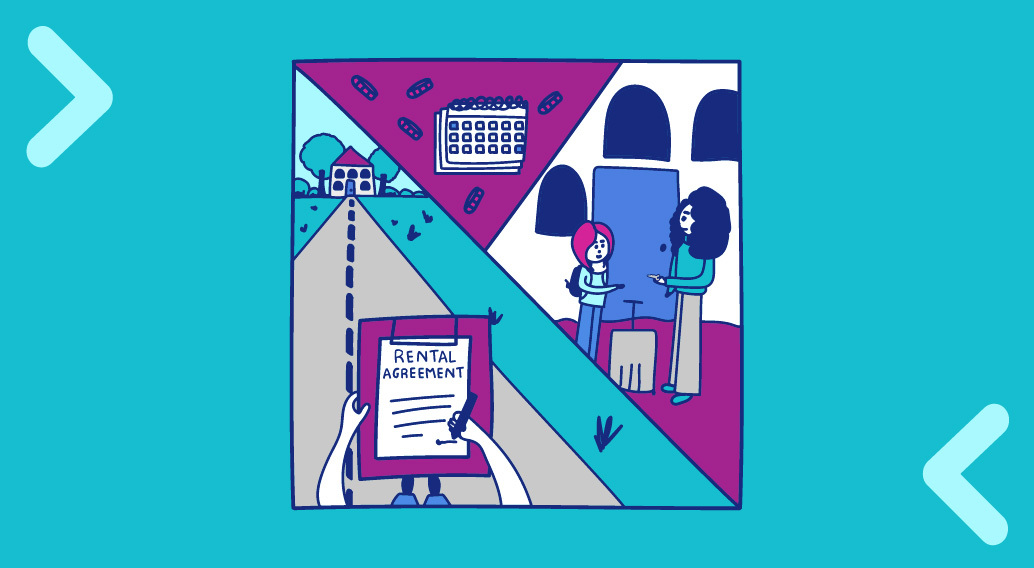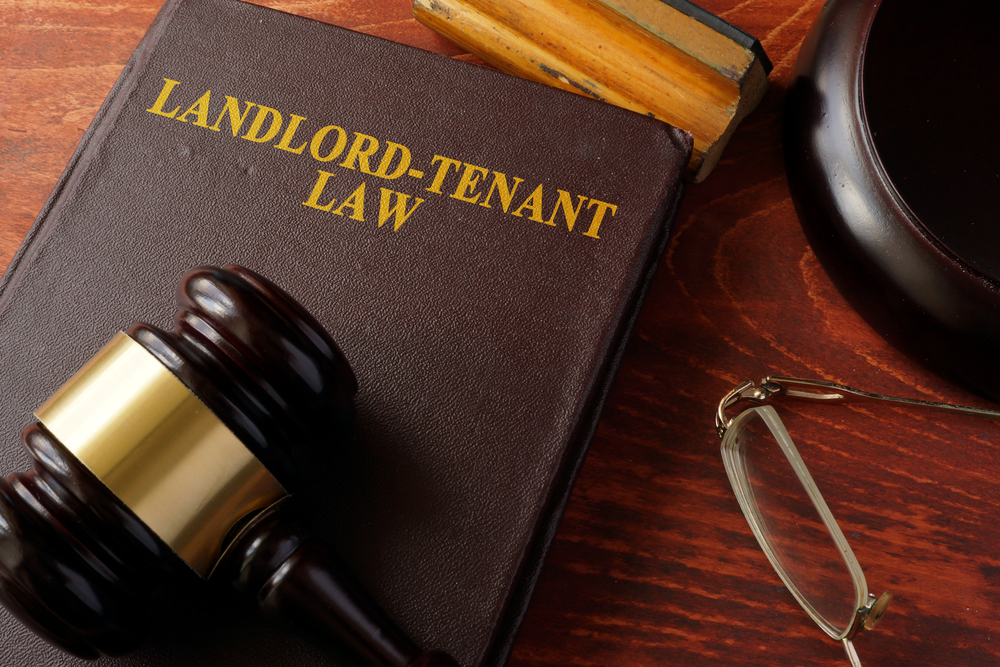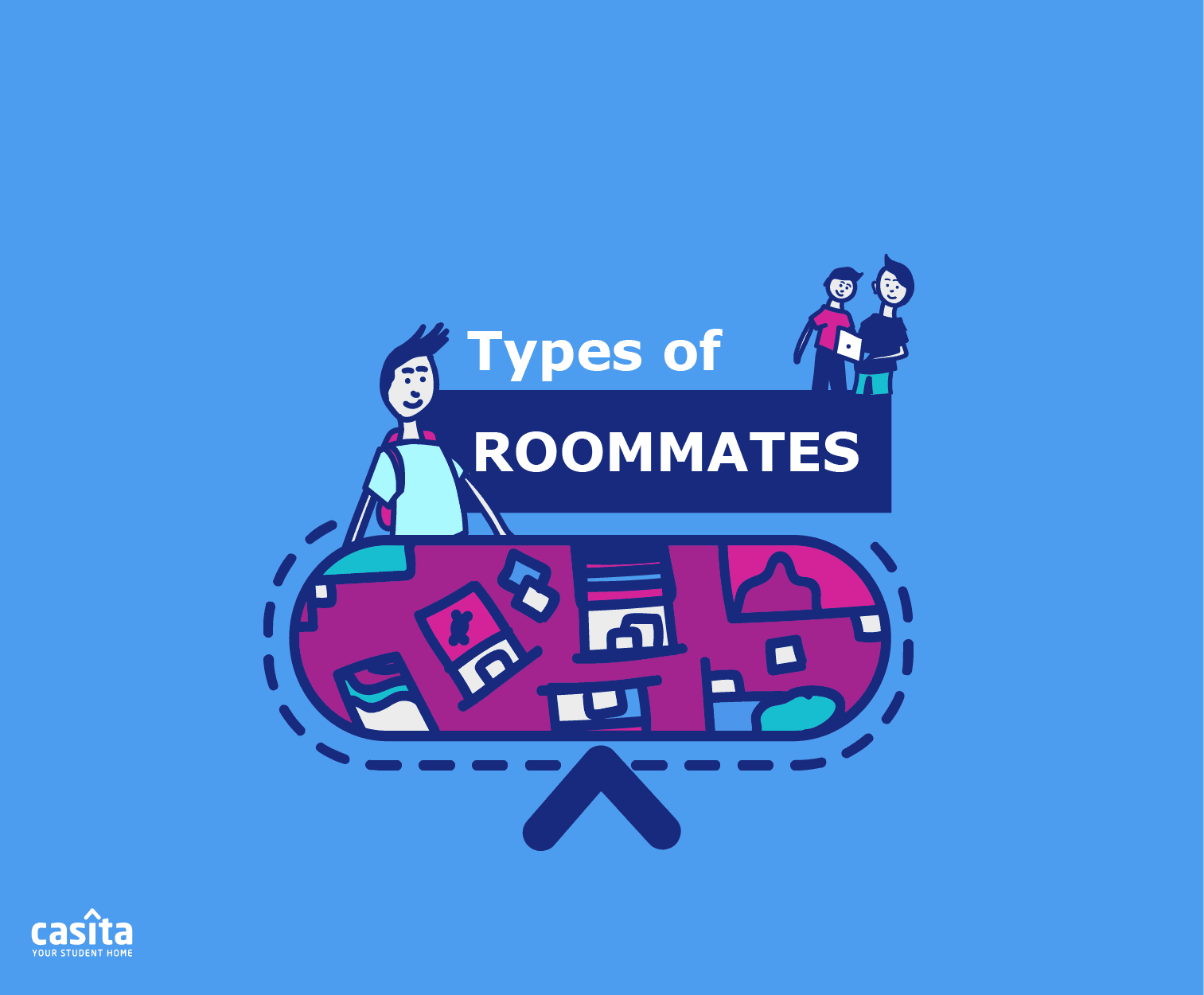Tips to Deal with Your Landlord
Student Housing
4 mins read
Share

Updated at: 25 November, 2025
Published at: 24 April, 2022
By Amira Adel
Tips to Deal with Your Landlord
Student Housing
4 mins read

Updated at: 25 November, 2025
Published at: 24 April, 2022
By Amira Adel
Share
When you rent an apartment, you'll have to deal with new people AKA landlords, and nothing says adulting like paying rent to keep a roof over your head. The landlord-tenant relationship can be complicated because you're both taking a chance when you sign a lease. As a result of that document, each individual becomes reliant on the other.
It's critical to establish a solid professional relationship with your landlord as soon as possible. While a negative situation can be stressful for both parties involved, the opposite is also true. A good connection with your landlord will keep you both safe, happy, and sane. So here are some tips to deal with your landlord.
1. Be Honest
It's nearly impossible to get along with your landlord after a bad start, so make an effort to establish a positive relationship right away. It's usually best to be straightforward and honest about a serious problem with your rental property or something your landlord has done. You must also be tactful. Remember being honest doesn’t mean speaking harshly, it is always better to use the sandwich technique. Also, be honest when you do something wrong. This includes situations where you or a friend has done something wrong, such as lighting a cigarette in a non-smoking apartment.
2. Be Polite
Yes, you read that right. It pays to be nice if you have a problem with your landlord, whether it's about heating, garbage pickup, or unexpected housing repairs. Even if you're angry, it's in your best interests not to show it. Simply be polite while bringing up your issues, and the landlord will be more than welcoming to deal with them.
3. Be Patient
In most situations, a little patience goes a long way, and this is especially true when dealing with your landlord. If you notify your landlord of an issue, don't expect it to be dealt with immediately. Give it a few days or a week, depending on the severity of the situation – but never let it go for too long, and don't be hesitant to bring it up again. You don't want to start nagging right away, unless it's an emergency, of course.

4. Pay Your Rent
As cliche as it sounds, but this is one of the most important things to do when you deal with your landlord. A tenant who does not pay rent on time or in full is the worst thing that can happen to a landlord-tenant relationship. It's better to get your rent in early or on time, even if they give you a 2-5 day time window before it's formally considered late.
Additionally, rent problems have an impact on more than just the landlord and your relationship. If you pay late frequently enough, your credit will suffer, and your landlord will most likely mention it if you are ever asked for a reference. If you don't think you'll be able to pay your rent on time, contact your landlord as soon as possible and make sure it doesn't happen again.
5. Mind Your Lease
Respect the lease's rules, which they've taken the trouble to spell out. Remember that the lease is in place to protect you both, and breaking it could result in both a personal and a legal problem.
If you agreed to not paint the walls, bring home an adopted puppy, or sublet the property without permission when you signed the lease, don't do so without asking first. Make sure you respect and care for the property.
6. Know Your Rights
There are some things your landlord absolutely cannot do, and others that he or she is required to give. You should be informed of the rules covering water, heat, power, entry, and a variety of other issues.
While there are a number of things you can do to foster a healthy relationship with your landlord, you aren't the only one who is accountable if something goes wrong. When you sign a lease with your landlord, take the time to understand and know your rights so you're prepared in case something goes wrong.
7. Know the Law
Each city and each country have different laws. Knowing all of the ones that apply to your case will be really beneficial. When you show that you have a working knowledge of the law, you are less likely to encounter a landlord who will take advantage of you. Some of them will, and some aren't really knowledgeable, so don't be afraid to share what you know.
8. Get Everything in Writing
Because you're both taking chances and relying on each other, try to document every apartment-related conversation and request.
Instead of calling or meeting in person, send an email. This will protect both of you and, ideally, make the relationship less stressful in the long run.
9. Be Willing to Compromise
Compromise is sometimes necessary, especially if you live in a landlord-occupied property. This might be over something as simple as parking spots or as crucial as water temperature. Whatever the case may be, accept that you will have to talk about it and that compromising may be your best option.
However, there are some things on which you should not compromise. For example, It's not cool to be freezing in your flat, and you shouldn't put up with it. Some things are inevitable. It's up to you to decide which battles are worth fighting, but once you've found one that is, don't be afraid to fight for yourself.
10. Be a Good Tenant
Finally, being a good tenant is one of the best methods to interact with your landlord. If you are respectful, polite, honest, and so on, you will most likely be treated in the same manner.
There you have it. These are all the things you need to know on how to deal with your landlord. Just make sure you follow them, know all your rights, and be a good tenant, and you will definitely have a good, hassle-free landlord-tenant relationship. Learning some conflict-resolution skills might also help you.
Student Housing
By Amira Adel
Share
Student Housing
Updated at:
Published at:
By Amira Adel
Share


